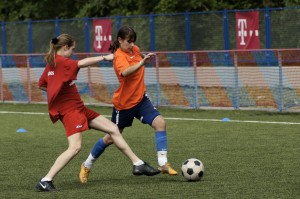 Creating Safe, Happy and Fulfilling Lives Building resilience involves creating the three things every parent wants for their children and every teacher wants for their students. This is for children and teens to have: Safe Happy, and Fulfilling lives. Making these pathways possible for young people protects them against mental health problems while making them less likely to be involved in risky behaviours, and more likely to succeed in school, relationships and life in general. Surveys of 54,846 young people by Resilient Youth Australia confirm that resilience is the active ingredient in creating great outcomes for our kids. The resilience pathways are the support mechanisms that every child deserves.
Creating Safe, Happy and Fulfilling Lives Building resilience involves creating the three things every parent wants for their children and every teacher wants for their students. This is for children and teens to have: Safe Happy, and Fulfilling lives. Making these pathways possible for young people protects them against mental health problems while making them less likely to be involved in risky behaviours, and more likely to succeed in school, relationships and life in general. Surveys of 54,846 young people by Resilient Youth Australia confirm that resilience is the active ingredient in creating great outcomes for our kids. The resilience pathways are the support mechanisms that every child deserves.
Safe To live in a home where at least one parent or caring adult loves you, cares for you and listens to you is a gift that lasts a lifetime. While the majority of young people have caring adults, 34% feel there is not an adult in their lives who listens to them.
Belonging – our sense of belonging is the most powerful antidote we have to suicide, violence and to drug abuse. The sense that someone would miss us if we didn’t come home is a very important human need. Our families need to clearly convey the message you are valuable and you are one of us. Our schools need to treat each student as a vital member of their learning community with the capacity for genius and greatness. Our communities need to regard young people as our future and as a valuable resource to create a better world. The latest research indicates that girls have higher levels of belonging to family, friends, school and community than do boys.
Bullying – we need to treat other people with the respect we all deserve – online, offline, everywhere, no exceptions. No one is left unscathed when bullying occurs. Victims are left with long-term damage. They are left with a sense that intimidation, belittlement and in some cases violence works in resolving relationship issues. Cyber-bullying peaks in Year 9 with more 31% of girls and more than 20% of boys being bullied online. In secondary school years, face to face bullying peaks in Year 8 when more than 51% of girls and more than 46% of boys report being bullied at least once in the last 12months.
Healthy eating – to function optimally brains need healthy nourishment. About 80% of the neuro-chemicals in our brains are created in our stomachs. This means that happiness, passion, motivation and vitality are related to what we eat. You don’t run a sports car on two-stroke fuel so don’t think you can run your genius brain on junk food. Avoid the sugars, salts and saturated fats. Give up fizzy sugary drinks.
Happy The secret to happiness has been debated since Epicurus and Aristotle were boys. We can reveal the results of 3,000 years of investigation into what makes people happy. If you think it is any of the following …- more holidays- more fabulous profits- more computer games- more pleasure and leisure- more chocolate- less stress- less demands on your time- the abolition of homework… you are sadly off the mark. After 3,000 years we can tell you that happiness is created by none of these things. Nor is happiness caused by thinking you are the most wonderful, positive, upbeat, goal-achieving, dynamic genius around(even though we are sure you are!)Happiness is created when you do things that are meaningful and are helpful to and valued by others. Firstly, take time to get to know the most mysterious person in your life- you. Then find an area of life where people value the contribution you can make. Avoid areas where people do not appreciate the contribution you can make
Mind health – we all have our ups and downs. No one gets through life without some misery and disappointment. To get through the tough times and enjoy the best times, we need to plan to bring the best out of ourselves. This means knowing when we need recovery time, time to think, time to re-shift our priorities as well as time to stop thinking so much about ourselves and get out and play and help other people.
Hope – if learned helplessness is a key predictor of the likelihood of depression, “learned hopefulness” is an antidote. The anticipation that good things will happen in the future and that we have the ability to make some of those good things happen is the basis of hope. It makes a remarkable difference to young people when the adults around them take on a basic position of hopefulness. Of course at times we all feel powerless and perhaps despairing. If you express hopelessness you hand over your power to the whims of the future. The future belongs to those who create it!
Relationships – our levels of satisfaction and happiness are directly related to the quality of the relationships that we create. There is probably no greater source of joy and no greater source of misery in people’s lives than relationships. Learning how to create positive friendships and relationships, and even more powerfully how to repair them in troubled times, is a formula for happiness in life.
Fulfilling Values – our opinions and attitudes about particular events may change according to circumstances. Our values are relatively unchanging aspects of positions we take about the world and about how we see ourselves. Values guide our actions and help us to define who we are and what we stand for. Values play a powerful role in our reputation and relationships. Key values such as kindness, friendliness, forgiveness, caring can help us to think more deeply about who we are and how we live up to our own expectations.
Social Skills – the skill of creating great relationships requires:1. an awareness of the range of your ownemotions;2. the ability to understand how other peoplefeel;3. when we are upset taking steps to calm ourselves down rather than blaming or acting out our upset on others; and4. clarifying your own values so that you know what sort of person you want to be and the sort of person you want other people to know you as.
Identity – In the temple above the oracle in Delphi was written the words “know thyself”. We are all works in progress but clarifying the sort of person you want to be at a young age is a major advantage in life. Having a reasonably clear idea of who you want to be, gives you the chance to seek out opportunities, friendships and relationships that suit you and help you to flourish. Developing a sense of identity takes a person from surviving to thriving. Most students value success for themselves, report feeling highly engaged in school andhave good levels of social skills and don’t think violence is a good way of solving relationship issues.
Three ways to build resilience There are three main ways we can increase the resilience of young people:1. Improve the quality of connections, friendship, compassion and forgiveness in schools, families and communities. Forgiveness is the central principle of cultural change.2. Demonstrate to young people the skills of resilience through classroom activities, year or school based events. This is often called socialemotionallearning.3. Strengthen student voice and increase the empowerment of young people by having them devise meaningful projects that involve local young people contributing to making a difference in their schools, communities or world. We call these “students create the future” projects.
Our Students Create the Future A guiding thought –If you think you’re too small to make a difference, you’ve obviously never been in a bedroom with a mosquito. The following steps are effective in increasingresilience:1. Complete the on-line Resilience Survey.2. Share your results with local councils, youth leaders, school staff, parents and local community members. Compare your results with other information you may have about your young people.3. Convene focus groups of young people of different resilience levels where they will endorse some findings and challenge others.4. Engage students at different levels of resilience to devise projects that will be seen as worthwhile by everyone. The students should decide on projects that they feel are meaningful.5. Interested adults meet regularly with student teams to support the young people and theirprojects.6. Supportive adults look at the survey results and discuss what interventions or changes are needed in addition to student-led projects. Finalise your action plan. Consider spreading your efforts across 5 main areas of schooling: curriculum and instruction; school organisation; co-curricular; community partnerships; and support services.7. Encourage young people to record their journey, identify achievements and prepare a presentation and share their work.8. Identify achievements, prepare presentations of outcomes that share, formally recognise and accredit their achievements.9. Repeat the Resilience Survey and the Action Plan process annually to evaluate successes to date and to further refine future interventions.
To date student-lead ‘Students Create the Future’ projects have included: Donating shoes to Africa , Friendship Days, Buddy benches, Increasing peace in the world Amazing Race activities, Creating frisbee golf courses, Festivals of friendship, Festivals of Ideas,Pledging academic success, Encouraging tolerance and diversity, Increasing compassion in schools, Increasing tolerance and diversity, Encouraging sustainable energy use inschools, Vegetable gardens, Water re-cycling and sustainability, Friendship Trees, Stop bullying songs and videos, Bringing arts and literacy projects into,the community, Developing circus and drumming skills., Andrew Fuller can be contacted at www.andrewfuller.com.au, where free downloads are available. Andrew’s most recentbook is
“Unlocking Your Child’s Genius”(Finch, 2015)If you are interested in enquiring about the Resilience Survey, please contact: Dr. Andrew Wicking, General Manager Phone: +61 400 113945Email: andrew.w@resilientyouth.org.au On Facebook like “Resilient Youth Australia”:https://www.facebook.com/ResilientYouthAustralia?ref=hlTo stay in touch with the latest developments in neuroscience and education “like” the Facebook page on The Learning Brain. We would like to thank the schools, communities and young people who have participated in the Resilience Survey to date. “Treat people as if they were what they ought to be and you help them become what they are capable of being”.- Johann W van Goethe


